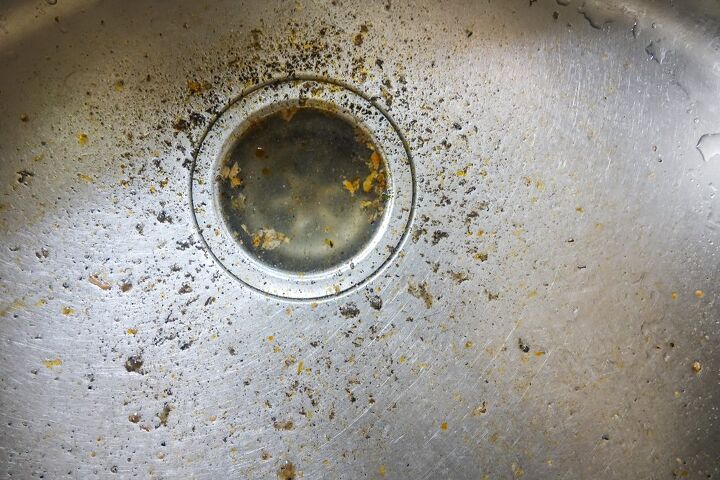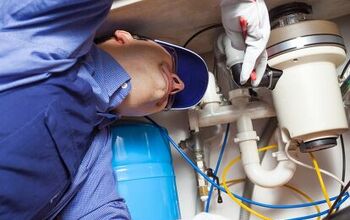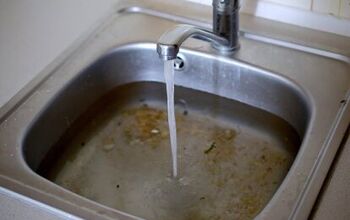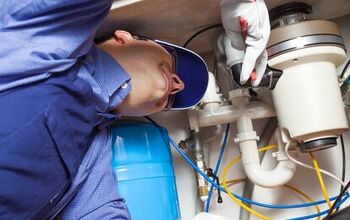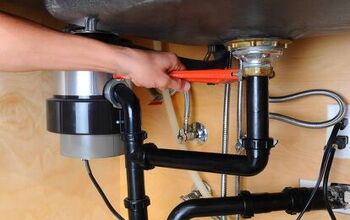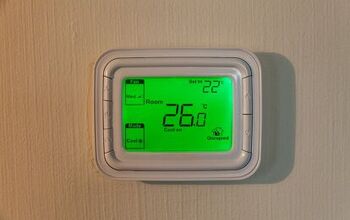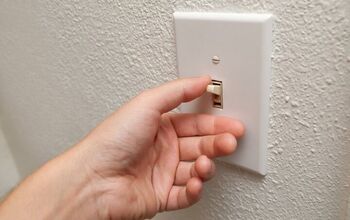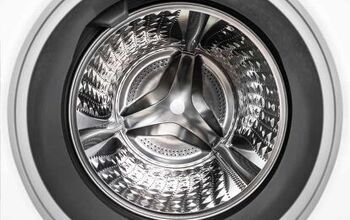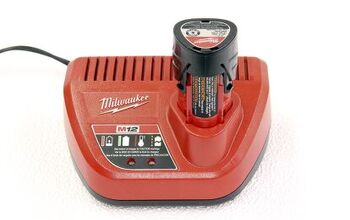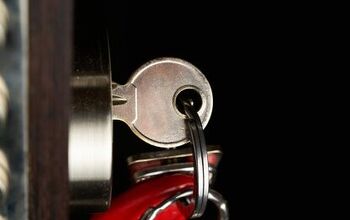Dishwasher Backing Up Into Garbage Disposal? (Fix It Now!)

When running your dishwasher, the last thing you want to see is water backing up into your sink through the garbage disposal. Unfortunately, this problem happens to many homeowners every year. It is not the worst issue you can face with plumbing, but it can be an inconvenient and overall unpleasant experience. What causes this problem?
Some of the most common issues that cause a dishwasher to back up are a jammed garbage disposal, a clogged sink, a blocked dishwasher, or an obstructed air gap. To prevent this issue, rinse off everything such as dishes, avoid certain food items like dense meat, and check for any obstructions that may be backing up in the unit.
These can all contribute to this problem.
Read on to learn more about these problems and what you can do about them. We will also discuss preventative care and how you can avoid running into this issue again in the future by taking action ahead of time. Working harder ahead of time can save you money spent on repairs in the future. It is vital for any home.
Do You Need to Hire a Plumber?
Get free, zero-commitment quotes from pro contractors near you.

Why is the Dishwasher Backing into the Disposal?
Knowing why the dishwasher might be backing up into a disposal can help you decide what your next best option might be. There are many reasons why your dishwasher could be filling up your sink with the liquid it produces, and it is critical to have a basic understanding of all of them.
Read on to learn about the four main reasons mentioned above. Each has its own set of solutions and effort required to fix them. You should study your equipment and see if one of these issues has plagued your system and prevented it from working as it should.
Jammed Garbage Disposal
The garbage disposal and the dishwasher use the same drainage system. If your garbage disposal is obstructed, there is no way for the water to drain. It has no choice but to make its way up into your sink. Sometimes, this can break the jam-free. Most of the time, however, the liquid sits.
Taking charge of this breakage is not very hard. You can fix this issue by following these two basic moves:
- Checking your disposal for obstructions and scrap foods stuck inside
- Removing any blockages inside carefully, turning the disposal off first
These two simple steps should solve your problem without too much trouble or time out of your day.
Of course, it can be gross sticking your hand inside the liquid to clear the clog. Use gloves to stay as clean as possible. Keep in mind that the sink will be grosser if you leave it alone and refuse to handle it. It is worth it to get it done right away, rather than sitting around and waiting.
Clogged Sink
A clogged sink might also be the source of your problem. This issue might come from the buildup of gunk, food scraps, and even dishes that have slipped and clogged the sink. You can check to see if it is this issue by attempting to resolve the clog in a few ways.
Some methods you might take on to fix a clogged sink include:
- Running the garbage disposal and seeing if the liquid goes down the drain
- Snaking the drain with a sink snake
- Using professional sink cleaners
All of these are great ways to fix a clogged sink in an efficient period. It should not impact your day too much.
If this is your problem, the liquid should drain soon after you clear the clog. However, if a clogged sink is not the problem, you have another issue on your hands. Read on to see if any other issues might be causing this backup. There are many things that it could be.
Blocked Dishwasher
Your dishwasher has a small area built into the back that allows water to drain as it washes. There is usually a shallow amount of water at the base of the system. If you open this device and there is more water in the bottom than usual, your problem is likely within the dishwasher itself\
To attempt to fix this issue, you should do a few things. These include:
- Remove the trays from the dishwasher and set them to the side
- Check the drainage tube for anything that could be blocking it
- Remove any obstructions from the piece and throw them away
This removal should allow the water to drain and free you of your problem, opening up your kitchen for use by your household.
A blocked dishwasher can happen if you do not wash food off of plates or if you use a bad-quality detergent. Ensure that you are preparing your dishwasher for washing so that it does not clog up your system. Taking preventative measures every time will allow each wash to go smoothly.
Obstructed Air Gap
Air gaps are not on every sink. These devices are built for backup prevention. It is usually located at the top of your sink, right next to the faucet. Water pouring out of this device reveals that you have a problem that needs to receive attention. It is simple enough for anyone to do this.
To fix this, shut down everything and find the drainage tubes for your dishwasher. You should then check inside these and remove any blockage that sits inside. This block might be food, bones, and even plastic wrap. Once you have done this, replace the pipes. Your air gap should not leak into your sink anymore without the blockage.
How to Prevent this Issue
As mentioned previously, preventative measures are a great way to keep your dishwasher water from backing up into the garbage disposal. Small actions can make a big difference in the future. By keeping a few in mind, you can take charge of the drainage system in your kitchen.
Three of the preventative measure that you can use for your kitchen include:
- Avoiding the placement of certain items in your sink
- Rinsing everything, from the dishes to the disposal
- Checking for any obstructions that might be inside the system
These are some of the simplest ways to prevent blockage from happening again.
Read on to learn more about these preventative measures. Keep these in mind when you clear your dishes, and you should be able to keep everything in working order for as long as you can.
Avoid Certain Items in Your Sink
The cause of many backup issues is food items going into the sink that should not be there. Anything too large or solid can cause severe damage to the drainage system before you can do anything to stop it. To prevent this, you should know what items should not go in the sink.
You should avoid placing items in the sink such as:
- Seeds, such as avocado pits
- Large chunks of dense meats such as steak and pork
- Silverware and other solid items like small containers
These items should be thrown away or reused, not put in the sink or placed in the dishwasher.
Be smart about what you put in your devices. If it is hard, the chances are high that your appliances will not handle it. Be kind to your pieces to make sure that they will last for as long as they can.
Rinse Everything
Rinsing everything is a great way to prevent clogs from building up and happening when you least expect them. Remove pieces of food from plates before they go into the dishwasher. Take care to rinse off your garbage disposal every time you run it.
Ridding your sink of a few small clogs is so much easier than trying to remove a giant piece that has built up over time. A simple rinse with water will make the biggest difference in how long your system lasts. Rinsing is very effective.
Check for Obstructions
The final proactive thing you can do to prevent clogs from causing backup is to check for obstructions. If you check constantly, you can catch these items way before they happen and stop breakage and the resulting clog that might occur.
You can look for obstructions:
- In the dishwasher, where the liquid drains from the system
- In the garbage disposal, especially after using it
- Inside the sink, particularly inside the pipes
These are great places to look out for obstructions, and they should be easy to spot.
Even if you feel your system is in working order, checking everything will ensure that you have not missed anything obvious. It is a redundant activity that will keep everything in tip-top shape for a very long time.
Do You Need to Hire a Plumber?
Get free, zero-commitment quotes from pro contractors near you.

Conclusion
While watching your dishwasher back up into your sink can be an unpleasant experience, it certainly does not have to be a permanent one. There are many solutions to the internal issues that might be causing this problem. Your kitchen will be back to normal in no time at all.
Once you fix this, there are preventative measures you can take to keep it from happening again in the future. Avoid placing solid objects in your disposal and always keep an eye out for obstructions that have the potential to build up and grow as time goes on. Being proactive will save you time and money.

Hannah DeMoss has been a writer for nearly a decade. Her passion for writing began years ago has continued to grow. Her expertise at home involves furniture restoration and other small DIY tasks. When not writing, Hannah enjoys the outdoors with her husband and pups, as well as traveling.
More by Hannah DeMoss



